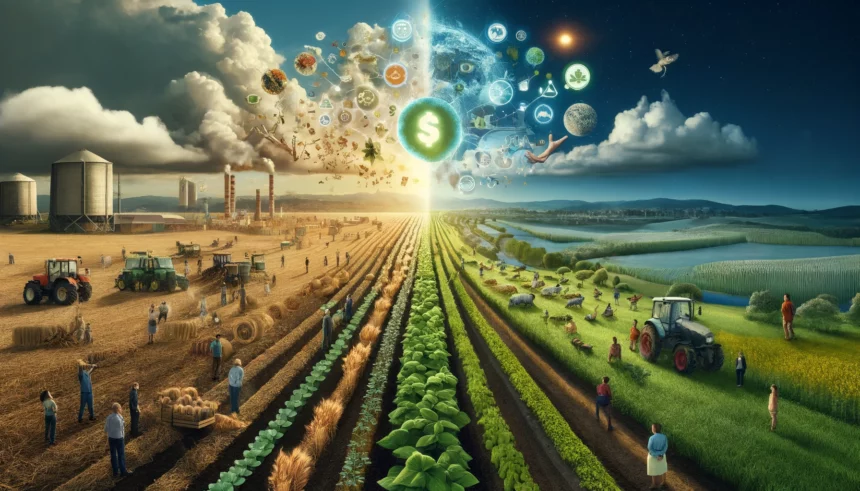In the world of agriculture, the winds of change are blowing. It’s no longer just about producing more; it’s about producing smart. With environmental crises knocking at our doors, it’s high time we address the elephant in the room: farming practices and their impact on our planet. But here’s the catch – convincing those at the heart of food production, our farmers, requires more than just good intentions.
Why Change is Needed Now More Than Ever
Farmers are at the forefront of an environmental battleground. With the challenges of temperature fluctuations, extreme weather, and natural disasters, it’s clear that the way we farm needs to evolve. These aren’t just minor inconveniences; they threaten our ability to feed a growing population and maintain the health of our planet. And let’s not forget, agriculture isn’t just a victim of environmental change but also a significant contributor, especially in terms of greenhouse gas emissions.
The Power of Persuasion
Change is necessary, but how do we get our farmers on board? It boils down to showing them the undeniable benefits, both for the planet and their pocketbooks.
- Financial Incentives: Let’s talk money. Sustainable farming can lead to premium products and access to green-centric financing and loans. Plus, the potential for earning from carbon credits can’t be ignored.
- The Benefits of Adoption: Fear of lower yields holds many back, but the reality is different. Sustainable practices can enhance soil health, ensure long-term usability of the land, and may not affect the yield adversely. It’s all about smart implementation.
- Support Throughout the Process: Change is hard. That’s why hands-on support, field demonstrations, and a clear demonstration of the financial and environmental benefits are crucial. Farmers need to see and believe that the benefits outweigh the risks.
Carbon Credits: A Game Changer
Despite the skepticism surrounding carbon credits, they remain a potent tool for incentivizing sustainable practices. With new standards and better planning, carbon credits offer a straightforward way for farms to contribute to carbon offsetting efforts while benefiting financially.
A Collective Effort
It’s clear that the journey to sustainable farming isn’t a solo mission. It requires the combined efforts of scientists, economists, bankers, and more. The goal? To create a system where technology, finance, and education work hand-in-hand to not only make sustainable farming viable but the norm.
In Conclusion
As we stand at the crossroads of agricultural history, the message is clear: sustainable farming isn’t just an option; it’s a necessity. But for this shift to happen, we need to start with those who feed the world – our farmers. By showing them the tangible benefits of changing their practices, we can begin to make strides toward a healthier planet. After all, the future of farming is not just about growth; it’s about sustainability.
















